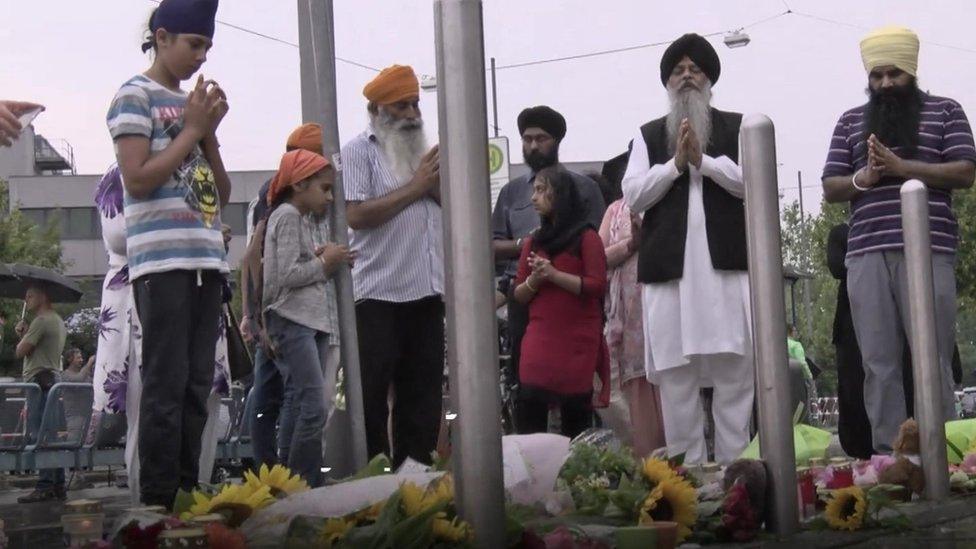Bavaria attacks: Germans shaken by violence
- Published
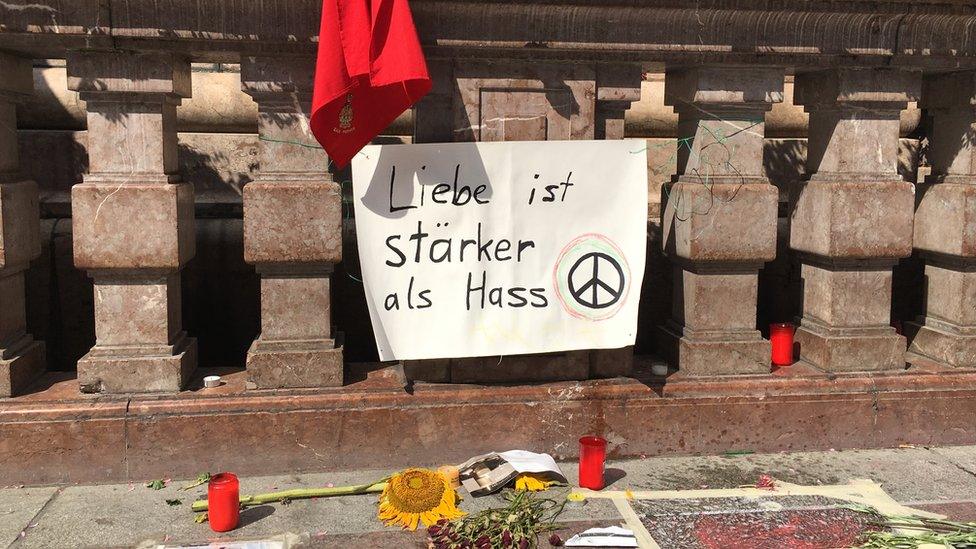
"Love is stronger than hate" is the message at this memorial
At first glance, everything seems normal in Marienplatz, Munich's central square, which is dominated by the great neo-Gothic Town Hall.
Locals rush about their business, the shops are full and crowds of tourists gather here to watch the Glockenspiel, the chiming carillon, with its dancing figures and little chirping golden bird.
But a glance under the Mariensaeule, a column topped with a statue of the Virgin Mary, tells you that all is not well here.
Flowers and candles have been laid at the foot of the monument in memory of those who died in the shootings on Friday at a shopping centre in the north-west of the city.
Their killer was an 18-year-old German-Iranian, David Ali Sonboly, who was obsessed with guns.
"To the victims of the 23rd of July" one message reads. "Love is stronger than hate," says another.
The series of violent attacks in the past few days has shaken people here.
What drives individuals to commit mass killings?
"I'm trying not to let it affect me too much in my daily life," Xenia, a student, told me. "But when one thing after another happens like this, you can't help thinking that the world is totally crazy."
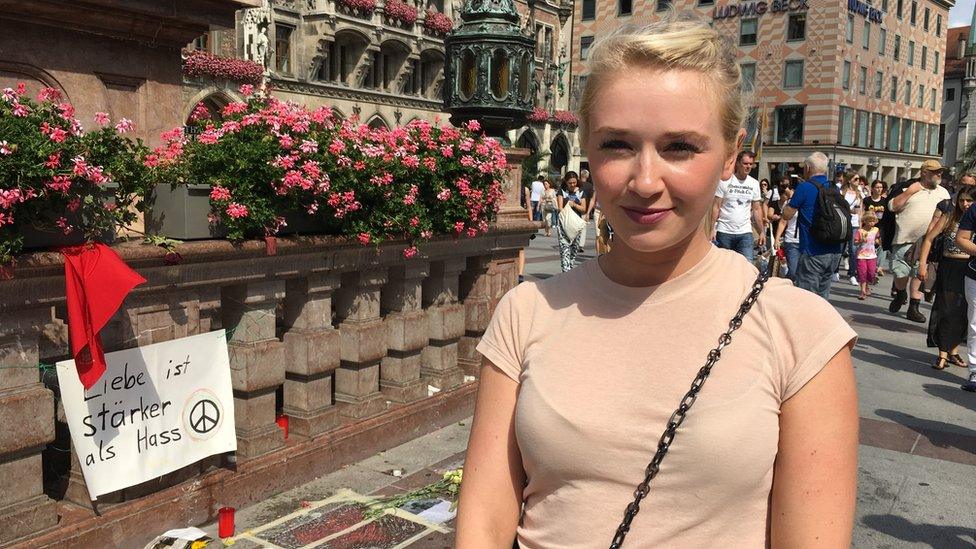
Xenia says she feels generally safe in Germany
"Do you think the government is doing enough in this situation?" I asked her. "Have they let in too many refugees and migrants?"
"I feel generally safe in Germany," she said. "Attacks have been prevented in Duesseldorf and Bonn, and you can't do much against lone wolves.
"And we can't just blame it all on the refugees. That makes it far too simple. There will always be problem cases, but in general the refugees risk their lives to come here."
On the other side of the square, Alois Frank shook his head.
"I think there will be more attacks like this if the government doesn't take action," he told me. "They are doing much too little.
"They need to check very carefully who these migrants are, whether they are real asylum seekers or not."
"What do you think about Chancellor Angela Merkel?" I asked him.
"I always used to like her very much," he said. "But since she has accepted so many migrants, I am strongly against her.
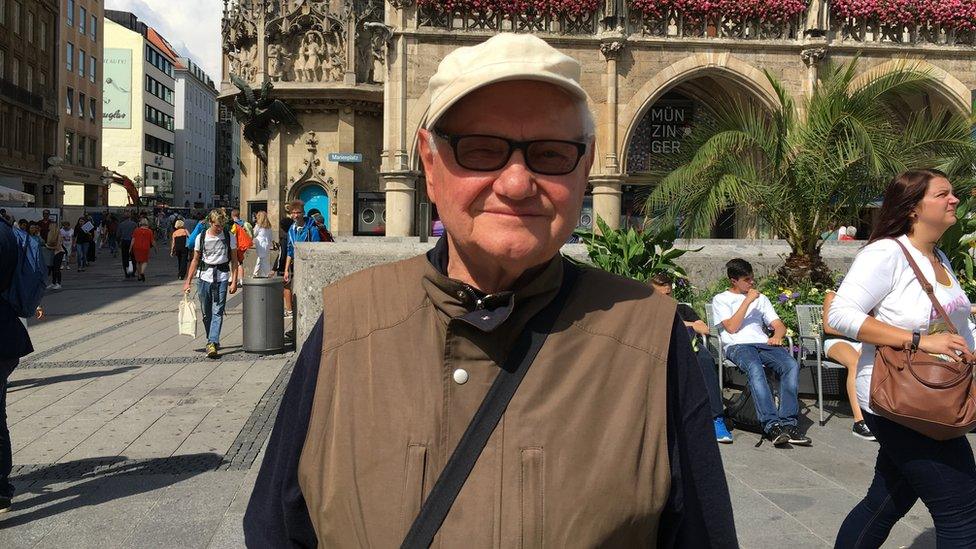
Alois Frank says he is concerned for his family
"I always voted for the CDU [Mrs Merkel's party]," he said, "but now I am re-considering."
He looked around at a couple walking with their little girl.
"I'm not worried for myself because I am 83 years old and if something happens to me, my God, who cares! But I am concerned for my family."
Lothar Plomitcer, 48, agreed. "Our government seems to be controlled by the EU and Brussels. What kind of experiment is it, when a million people flee here? I know they have a good reason to leave Syria and Iraq, but it's uncontrolled. People need borders."
Others in this cosmopolitan city are worried for other reasons.
Wandering through a shopping street with her friend Nadia, Kadidja told me the attacks made her concerned for her safety.
"As a Muslim woman with dark skin who wears a headscarf, I find the current atmosphere quite charged," she said.
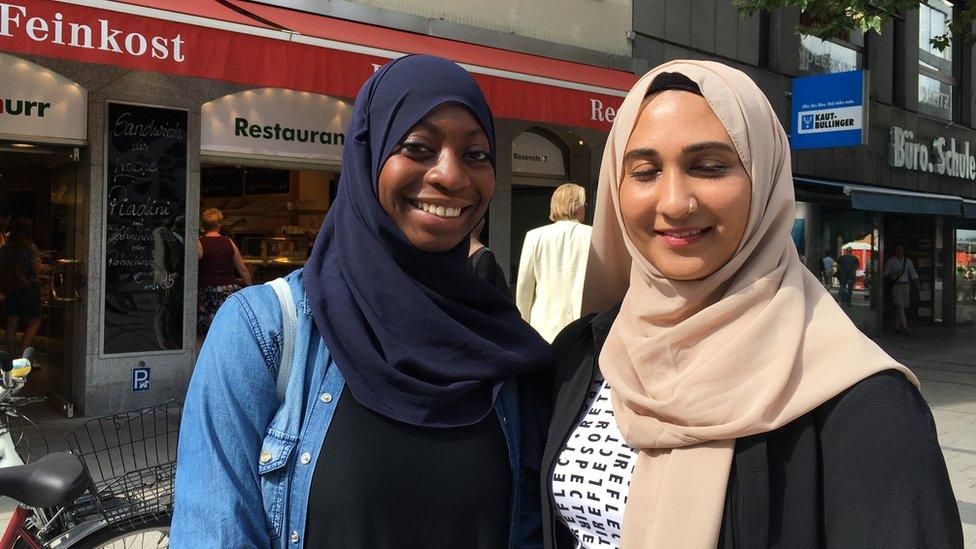
Kadidja (left), with her friend, says the current atmosphere is quite charged
"I notice that lots of people are looking at me and are a bit scared of me. The mood is quite tense.
"I grew up here, I see myself as a German, but people still don't totally accept me. There are still so many prejudices against Muslims. I hope that will change one day."
The oppressive heat of the afternoon gave way to a violent thunderstorm, and I took shelter in the doorway of a shop, along with a middle-aged woman with brown hair.
"These are strange times for Bavaria," she told me. "Even the weather doesn't like it."
"Are you worried?" I asked her.
"I was worried on Friday during the shootings," she said. "And I was a bit careful on the underground today. But what can you do? You can't let it stop you."
See why religious groups in Germany want to form closer relations
- Published20 December 2016
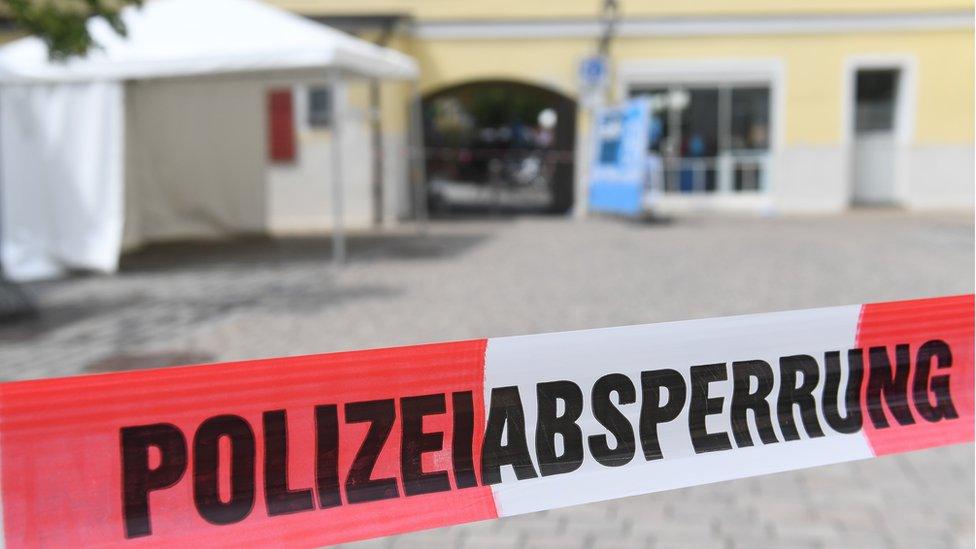
- Published25 July 2016
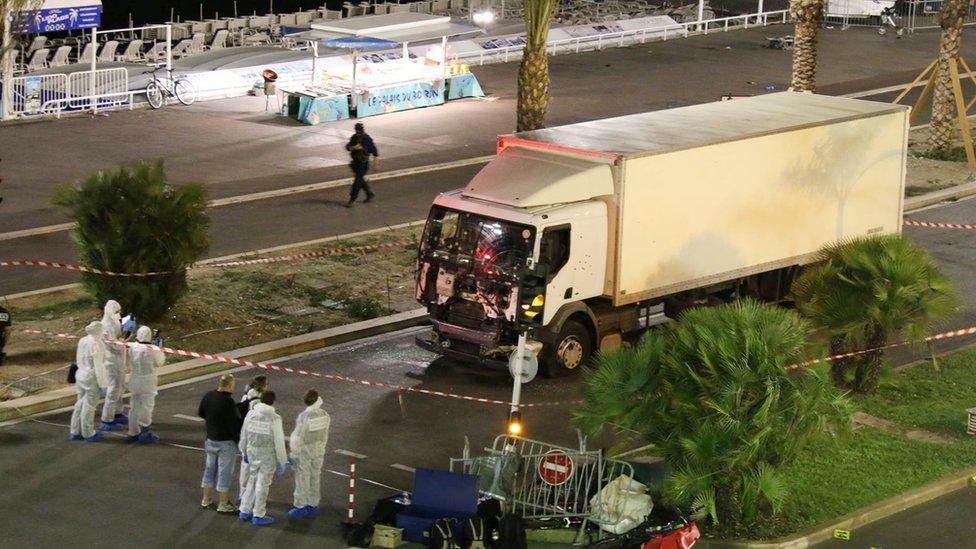
- Published25 July 2016
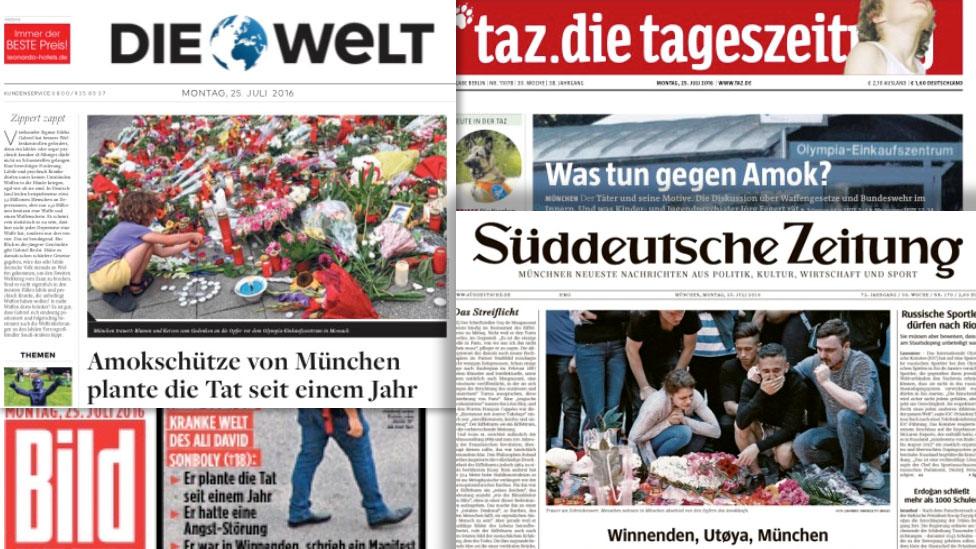
- Published25 July 2016
